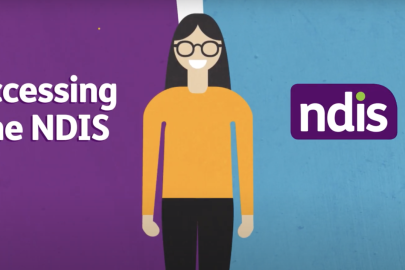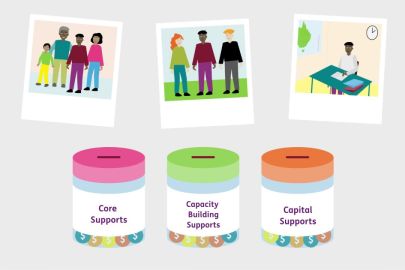The Future of NDIS: Upcoming Changes and What They Mean
The National Disability Insurance Scheme (NDIS) has been a cornerstone of support for individuals with disabilities in Australia, providing essential services and resources to enhance their quality of life. As the NDIS continues to evolve, several key changes are on the horizon that could significantly impact participants and their families. This article explores the upcoming changes to the NDIS, what they entail, and how they could shape the future of disability support in Australia.
Overview of Upcoming NDIS Changes
The NDIS is undergoing a series of updates designed to improve its effectiveness and better meet the needs of participants. These changes are driven by feedback from stakeholders, evolving best practices, and a commitment to creating a more inclusive and efficient system.
1. Enhanced Participant Experience
One of the primary goals of the upcoming changes is to improve the overall participant experience. This involves streamlining processes and enhancing the support provided to individuals with disabilities.
Streamlined Access and Planning
Simplified Access Process: Efforts are being made to simplify the process for accessing NDIS support, making it easier for individuals to apply and receive assistance.
Improved Planning Processes: Enhancements to planning processes aim to ensure that participants receive more personalized and effective support plans, tailored to their unique needs and goals.

Increased Transparency and Communication
Clearer Information: The NDIS is working to provide clearer and more accessible information about available supports, funding options, and service delivery.
Enhanced Communication Channels: Improved communication channels are being established to facilitate better interactions between participants, providers, and NDIS representatives.
2. Strengthened Focus on Outcomes
The NDIS is placing a greater emphasis on achieving meaningful outcomes for participants. This involves focusing on the impact of supports and services on individuals’ lives.
Outcome-Based Funding
Performance Metrics: Funding will increasingly be linked to the achievement of specific outcomes, such as improvements in independence, employment, and community participation.
Goal Setting: Participants will work more closely with their planners to set clear, measurable goals and track progress towards achieving them.
Enhanced Support for Employment and Education
Employment Supports: There will be a greater focus on providing supports that help individuals gain and sustain meaningful employment, including job training and workplace accommodations.
Educational Opportunities: Funding and support for educational initiatives are expected to increase, helping participants access training and educational programs that enhance their skills and opportunities.
3. Improved Provider Quality and Accountability
Ensuring high-quality service delivery is a key priority for the NDIS, and upcoming changes aim to enhance provider quality and accountability.
Stronger Provider Standards
Quality Assurance: New quality assurance measures will be introduced to ensure that providers meet high standards of care and service delivery.
Provider Registration: Stricter requirements for provider registration and ongoing monitoring will help maintain service quality and accountability.
Enhanced Complaints and Feedback Mechanisms
Improved Complaints Handling: A more robust complaints handling process will be implemented to address participant concerns and resolve issues more effectively.
Participant Feedback: The NDIS will place greater emphasis on collecting and acting upon participant feedback to continuously improve service delivery.
4. Integration of Technology and Innovation
Technology and innovation are expected to play a significant role in shaping the future of the NDIS, making services more accessible and efficient.
Digital Platforms and Tools
Online Access: Enhancements to digital platforms will provide participants with easier access to their NDIS plans, funding details, and support services.
Assistive Technology: Increased funding and support for assistive technology will help individuals access tools and devices that improve their quality of life and independence.
Data-Driven Insights
Improved Data Collection: Better data collection and analysis will inform decision-making and help the NDIS identify trends and areas for improvement.
Personalized Services: Data-driven insights will enable more personalized and targeted services, ensuring that supports are tailored to individual needs.
Preparing for the Changes
As the NDIS evolves, participants and stakeholders can take several steps to prepare for and adapt to the upcoming changes.
1. Stay Informed
Regular Updates: Keep up to date with the latest information about NDIS changes through official channels, such as the NDIS website and newsletters.
Engage with NDIS Representatives: Engage with NDIS representatives and support coordinators to understand how the changes may impact your plan and services.
2. Review and Adjust Plans
Review Current Plans: Regularly review your NDIS plan to ensure it aligns with your goals and the upcoming changes.
Adjust as Needed: Work with your planner to make necessary adjustments to your plan to accommodate new supports or funding options.
3. Utilize Available Resources
Access Support Services: Take advantage of support services and resources available to help you navigate the changes and maximize the benefits of your NDIS plan.
Seek Advice: Seek advice from support coordinators, advocacy groups, and other resources to ensure you make informed decisions.
Conclusion
The future of the NDIS brings exciting changes aimed at enhancing participant experience, focusing on outcomes, improving provider quality, and integrating technology and innovation. By staying informed, reviewing and adjusting plans, and utilizing available resources, participants can effectively navigate these changes and continue to benefit from the support provided by the NDIS. As the NDIS evolves, it remains committed to creating a more inclusive and effective system for individuals with disabilities.




